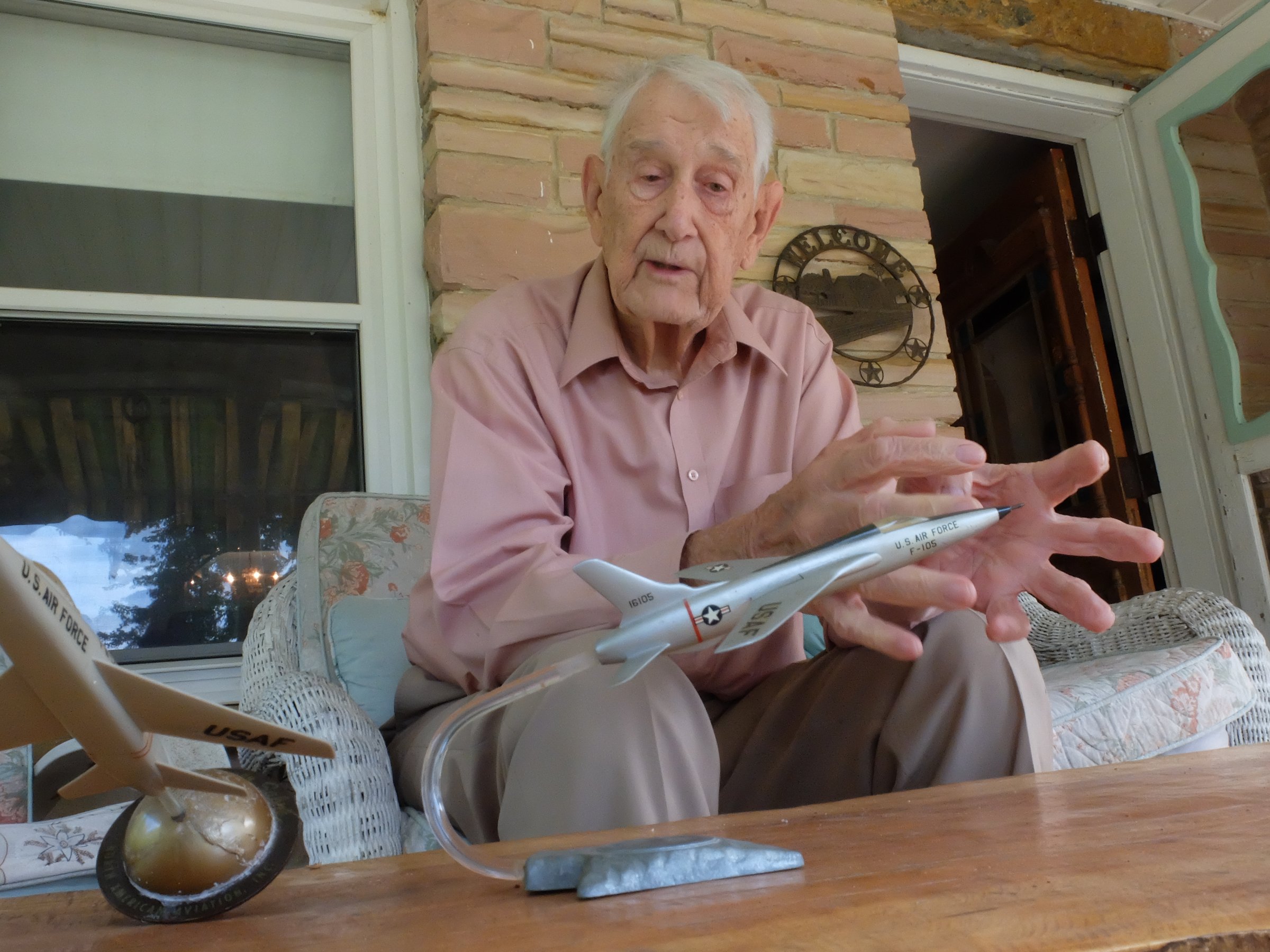BIO
Name: Cecil B. SmithAge: 89Branch of the military: U.S. Air ForceYears of Service: 1948-1968
 View our 21 Veteran Salute page
View our 21 Veteran Salute page
Cecil B. Smith was born about a mile from his perch on the front porch of his home in Spring City, Tennessee.
"Yep, born right over there - March 9, 1929," the 89-year-old said, pointing a long finger over his right shoulder. "It's not far at all."
Distance is relative for Smith. It has to be.
Smith joined the Air Force not long after graduating from Spring City High in 1946. He spent a year at the University of Tennessee at Knoxville, but money ran short and his desire for the next thing was only growing.
He was too young start work at the new DuPont Plant in Chattanooga, and he figured why not, and in 1948 he took the Army General Classification Test and had the second-highest score in his group. So as the others who enlisted were given tasks and assignments, Smith was sent to flying school.
The irony of Smith's first airplane ride being his flight to flying school still makes him smile 70 years later.
"If you would have told me when I was a kid that I would be up there," Smith said looking to the sky, "I would have told you, 'You're crazy.'
Like so many of the dominoes that fell into place in Smith's life, he had one more hurdle to clear.
"My teeth were in really bad shape," Smith said, "and it took three trips to this lieutenant colonel to get them fixed.
"And believe it or not, that colonel had graduated from Spring City High School, too, and knew my mother."
His mouth fixed, the sky was the limit for Smith. He graduated flight school in March 1951 and was flying night missions by July.
Three months later - "Oct. 18, 1951," he recites quickly from memory - Smith, who served as a fighter pilot and test pilot, was on a bombing mission that looked like it was going to be foiled by the weather.
He broke through the cloud cover in a B-26 strapped with thousands of pounds of explosives and saw a convoy of Korean trucks on the road below. He released his full arsenal with deadly precision.
"It blew up the whole valley," he said.
Those trucks were carrying ammunition, and the explosions - it was close enough to an ammunition dump that the explosions set of a chain reaction - were massive. He earned the Distinguished Flying Cross for that mission.
"Our main mission was to fly at night and stop supply trucks and trains with bombs right there on the 38th parallel," he said.
Smith's closest run-in with danger was not the enemy.
"I was following a train and getting ready to drop," he said, "but as I am following it along the tracks in the dark, I noticed the smoke disappeared."
Smith pulled back hard and drove his plane almost vertical. He edged his way over the mountain in front of him - the train went into a tunnel - without much room to spare.
"It was too dark to see, but it had to be close," he said. "That's the most scared I've ever been in a plane.
"I know I was lucky, and I looked at my crew and said, 'Let's go home."
That home - retiring in 1968 as a major in the Air Force, raising his three children while working most of his post-military life with Delta and living around Atlanta - was less than a mile from where it all started.
Contact Jay Greeson at jgreeson@timesfreepress.com and 423-757-6343.

